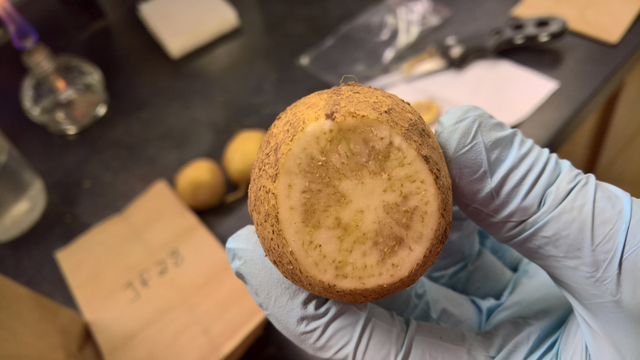Texas A&M to look at zebra chip disease

Texas A&M AgriLife Research scientists are working on a new research project to fight plant diseases transmitted by psyllid insects—particularly the zebra chip disease, which has impacted potato production for decades.
Funded by a $682,500 grant from the U.S. Department of Agriculture National Institute of Food and Agriculture, this three-year project will investigate the mechanisms through which the bacterial pathogen Candidatus Liberibacter solanacearum affects plant and insect immune systems, leading to agricultural losses.
The findings by researchers in the Texas A&M College of Agriculture and Life Sciences could help significantly reduce pesticide dependency and enhance sustainable agricultural practices.


